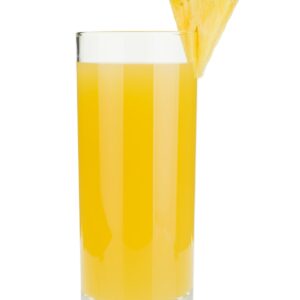
We’ve all heard the saying: “Feed a cold, and starve a fever”, but is it really good advice that we should follow? And how can we eat to beat a cold or flu, and can we prevent it in the first place? Is there a food link? Here’s some advice from HFG senior nutritionist, Rose Carr.
Colds and flu are quite different, and sometimes it can be tricky to tell what you have. The flu is not just a bad cold (even though a bad cold may feel as bad as the flu!). Flu is generally more severe. Both conditions are caused by viruses. With a cold you generally start with a sore throat and a few sniffles. While you can get a mild fever at the start of a cold, you often won’t. Over the first few days you may start sneezing more frequently, a runny nose becomes more apparent, the mucus tends to get thicker, and you may develop a cough before symptoms finally taper off. The whole process can take a couple of days, or it may be a couple of weeks before it passes.
The flu, on the other hand, is more likely to knock you over and send you right to bed. The first symptom can often be the chills, a headache or an aching body. You’ll have a 38°C or higher fever in the first few days. You may not get the full range of cold-like symptoms, but there’ll be one or two. You’re also likely to be lethargic and even when you are recovering, your energy levels may remain low for a while.
While there are plenty of cold and flu tablets available to help suppress the symptoms, rest is the best course of action. You may find you can’t get out of bed for a few days while you have a high fever. In some work places, ‘soldiering on’ is encouraged, and with a cold you usually can – but you need to consider how productive you will be and whether you can avoid passing it on to your co-workers. Colds and flu are most contagious in the first few days and can continue to be contagious for up to a week or so. Scrupulous hygiene is the best way to prevent spreading a cold or flu virus. Wash your hands regularly with soap and water and dry them well, or use a hand sanitiser. Make sure you always cover your nose and mouth with a tissue when coughing or sneezing, then bin your used tissues.
The old adage ‘feed a cold and starve a fever’ may not be the best advice
A fever speeds up your metabolism – so even though you may be resting, your body needs energy and nutrients from food to help fight the illness. When you have a cold you may find you have a reduced appetite – especially if you are all blocked up and can’t smell and taste your food – but your body needs energy and nutrients to fight off a cold virus, too.
Once you’ve come down with a cold or flu, what you eat and drink may help you feel better, but it won’t necessarily shorten the duration. Fluids are the most important. If you have a fever, you’re more prone to dehydration. Sipping fluids often will keep the lining of your nose and throat passages moist and the mucus fluid. Warm fluids – such as the traditional chicken soup or hot water with lemon and honey – can help to clear nasal passages and may soothe a sore throat. Herbal teas, juice, water and soups help keep fluids up, but limit or avoid caffeinated drinks and alcohol, which can be dehydrating.
When it comes to food, it depends on what you can handle eating, but go for nutrient-dense foods such as porridge, fruit smoothies or vegetable soup with dry wholegrain toast.
So can we prevent getting a cold or flu in the first place?
An adequate intake of a range of vitamins and minerals is essential for your immune system to perform at its best. It’s recommended that you get your vitamins and minerals from food (as opposed to supplements) so you also get the protective phytochemicals and macronutrients they contain. A varied diet, with plenty of fruit and veg, is your best defence.
High levels of stress and a lack of good-quality sleep can also affect your immunity and make you more vulnerable to colds and flu. One of the best ways to keep stress at bay is through regular exercise, which will help you sleep better, too. There’s no solid evidence for or against taking supplements when it comes to preventing or recovering from a cold.
www.healthyfood.com











